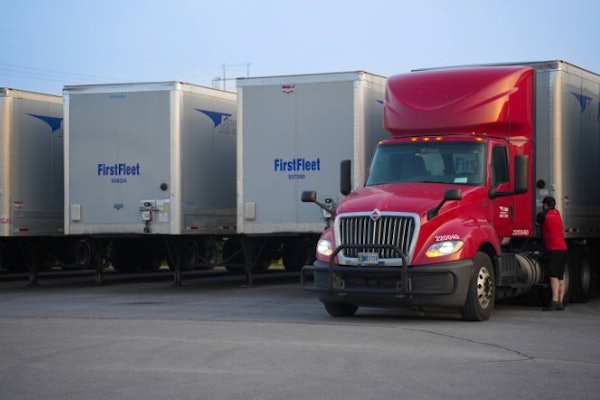U.S. Senate members heard testimony that if electronic onboard recording devices won’t become a requirement, stronger deterrents are necessary to deter “egregious” hours-of-service violations.
Kenneth Mead, U.S. Transportation Department inspector general, testified April 5 before the Senate Commerce Committee on transportation safety programs. “We have conducted criminal investigations of egregious cases in which trucking company officials have been prosecuted for systematically forcing their drivers to drive well in excess of the limits,” Mead testified.
Log book and hours rules need strengthening because unscrupulous carriers and drivers view violations as “the cost of doing business,” he said.
The Federal Motor Carrier Safety Administration rescinded a proposal that would have required recorders as enforcement evidence. Since then, courts have ordered the agency to review that decision.
If FMCSA ultimately doesn’t require the devices, agency officials should consider other strategies to decrease hours violations, Mead said.
As an example, Mead said FMCSA should increase fines for a missing or incomplete log book to equal that for having a false log book. Another suggestion was to allow information from a carrier’s existing GPS or onboard recording device to check for hours violations during compliance audits.
The agency also needs to fortify state enforcement of laws barring Mexican trucks from illegal U.S. operation, Mead said.
In 2002, FMCSA issued an interim final rule requiring state inspectors to place out of service any truck operating without authority or beyond the scope of its authority. Five states still need to adopt rules to enforce this.
Some states have adopted that rule but are not placing trucks out of service because the Commercial Vehicle Safety Alliance’s North American Inspection Standards out-of-service criteria do not include operating without authority.
In its response to Mead’s January report, FMCSA has said it will continue to encourage quick adoption and full enforcement of its 2002 rule.
Mead said state officials need training and guidance on operating authority.
He also recommended:
Covert methods to uncover commercial driver’s license fraud and ensure that truckers who obtained their CDLs from suspected examiners have obtained their licenses properly.
Greater protection for consumers against fraudulent household goods movers. FMCSA recently increased its full-time investigators from one to 11 and plans to do more investigations. The U.S. House version of the highway reauthorization bill, passed March 10, would increase penalties for such fraud and give states the authority to enforce rules against companies operating in interstate commerce.









